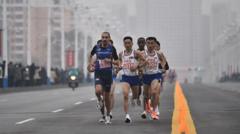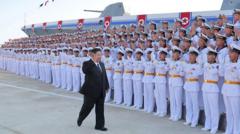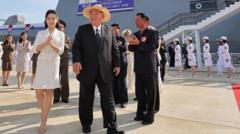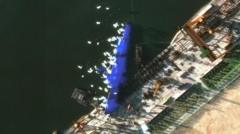North Korea has hosted the Pyongyang International Marathon for the first time since 2019, featuring around 200 foreign participants as the nation cautiously reopens after pandemic restrictions.
North Korea Revives Pyongyang International Marathon After Six-Year Hiatus

North Korea Revives Pyongyang International Marathon After Six-Year Hiatus
Reclusive nation welcomes foreign runners back to its streets amid cautious reopening.
North Korea has reintroduced the Pyongyang International Marathon for the first time in six years, as approximately 200 foreign runners participated in the event held in the capital city. The marathon, which was originally launched in 1981 to celebrate the birthday of the nation’s founding leader, Kim Il Sung, last took place in 2019 with nearly 950 foreign participants before North Korea shut its borders due to the COVID-19 pandemic.
In the wake of its gradual reopening, North Korea has allowed entry only to travelers on organized tours, predominantly from Russia. Koryo Tours, a travel agency from Beijing, has organized trips to the marathon, offering packages that include flights and accommodations for about 2,195 euros ($2,406). Their promotional material highlights the unique opportunity this event presents for guests to interact with the local populace in a way few experiences in North Korea allow.
The marathon's scenic route led runners past notable landmarks such as the Kim Il Sung Stadium, the Arch of Triumph, and the Mirae Future Scientists' Street. Spectators filled the stadium, cheering and waving flags, creating an energetic atmosphere for the participants. Pak Kum Dong, a local runner, expressed his determination, stating, “The eyes of our people on me helped me to bear the difficulties whenever I feel tired.”
Despite the successful hosting of the marathon, there is no publicly available information regarding the race results. North Korea started easing its stringent COVID-19 measures only in mid-2023, with initial allowances for limited tourist entry. However, these efforts faced setbacks, including the suspension of tours shortly after they began.




















